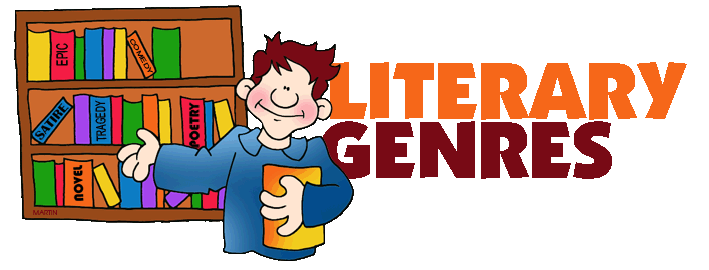 Photo credit: literature.mrdonn.org
Photo credit: literature.mrdonn.orgAs a writer, it's important to know your genre inside and out. Whether you write science fiction, fantasy, or chick lit, the principle remains the same for everyone--get a good feeling of what you're writing before you dive into a project headfirst.
The first way to familiarize yourself is read as many books as you can in that genre. For example: if you want to write science fiction, a good choice to start out with would be The Hitchhiker's Guide to the Galaxy. If you want to write something inspirational, try books by Thomas Kinkade and Katherine Spencer. If chick lit is your game, try the Shopaholic series by Sophie Kinsella. Choosing the right books to read will ensure that your project reflects the quality and effort of published authors.
Once you've found a couple of good books in the genre you are writing, try to acquire a deeper perspective of the book itself. Currently, I am trying to write a cozy mystery, and I've been reading the Knitting Mystery series by Maggie Sefton:
My first step is always analyzing the author's voice. What is it about the way Maggie Sefton spins this series that makes it successful? What is this author's secret to making her book enjoyable? So far, I've noticed that while mysteries are known for being plot-driven, Sefton puts a lot of effort into making the characters equally as well-developed as the plot. That's one quality of hers I've noted that I will make an effort to use in my own cozy-mystery-in-progress.
As an aspiring writer myself, I know it's important for me to learn from both the mistakes and good qualities of other writers in the same genre. The same goes for you. Read, analyze, think, and note. These four simple steps have proven helpful for me, and I hope they do the same for you.
Another thing to think about while reading a book of the same genre is the length. I've noticed the cozy mysteries I read typically aren't very long. If you write literary complexities, then you are bound to have a longer piece up for publication. If you enjoy writing picture books, the length of your own book will typically be pretty short.
Once you've read a few books and honed in on a few excellent authors, you have a strong feeling of what your genre is about. But how do you know your genre is 'write' for you? (Get it? Ha ha!) If you still have a tiny shred of doubt in your mind that you enjoy another genre more than the one you are setting out to write or if you think you are incapable of fully capturing the essence of your genre, it might be time to consider all the different possibilities there are when it comes to the world of writing.
A test that works for me is trying to write one page of my genre. Then I examine that page with the most critical eye I can bring out. Firstly, I look for specific references. If I am trying to write a sci-fi novel, I'm going to look for mentions of outer space, extraterrestrial activity, etc. Then I look for the emotions the characters are experiencing on that page. If I'm writing a romance, are my characters lonely enough to be able to find a significant other in the book? If I'm writing a mystery, do my characters always appear naturally inquisitve, or are they dull and dawdling? After I have found out about both the emotions of the characters and the specific references, I'm going to take a look at my author's voice. Does my individual voice shine through clearly, or is the page mundane enough to be written by anyone? For example, one writer may like to write very concise prose. If that writer looks through her page and finds flowery sentences with adjectives tacked on before every word, chances are she's not sure how to approach this genre and is stifling her writing style.
If after going through those three steps and I am still unsure about the genre itself, I'll read the page over again and think to myself, Will I be able to write a whole book on this? Estimate the amount of pages you will be able to write revolving around this theme. If it's significantly less than one hundred fifty, you've got a problem.
After undergoing this form of examination, some writers may choose to abandon their original genre. And that's completely okay, if your rough draft idea really wasn't working for you. Other writers will carry on with their story.
For those writers who do use that genre, I would definitely advise you to take a look at the major publishers of your genre. Read through their submission guidelines. Familiarize yourself with the types of books they publish.
Those are my ideas for truly getting to know your genre. In a nutshell, take a look at similar authors, make sure your genre is right for you, and do lots and lots of research before starting on your project.
Hitch Hiker's Guide to the Galaxy sucks as science fiction. But it is a question of making money as a writer. Here is the quintessential science fiction story.
ReplyDeleteOmnilingual (1957) by H. Beam Piper
http://www.tor.com/blogs/2012/03/scientific-language-h-beam-pipers-qomnilingualq
http://www.feedbooks.com/book/308/omnilingual
http://librivox.org/omnilingual-by-h-beam-piper/
I agree with psikeyhackr. I personally didn't think it was a good example of science fiction, but I could not think of any others and was forced to use one on the spot. For more writing tips, subscribe!
Delete(Also, if you don't mind me asking, how'd you find my blog?)